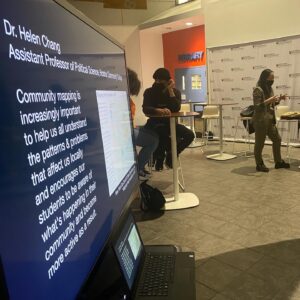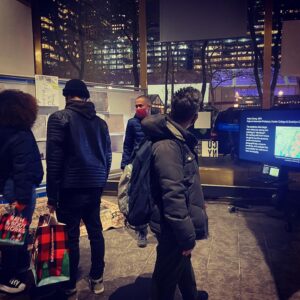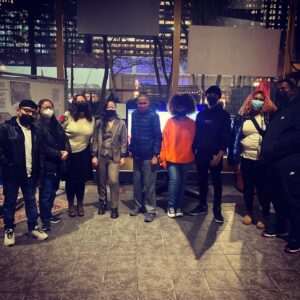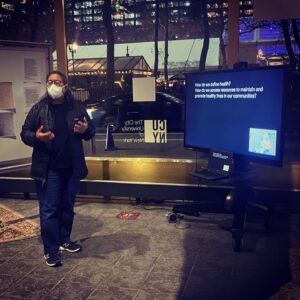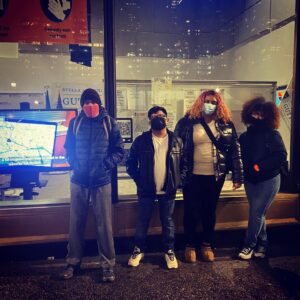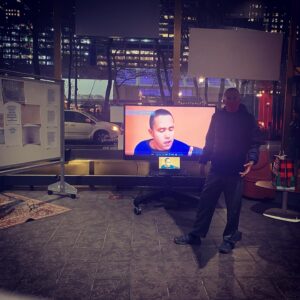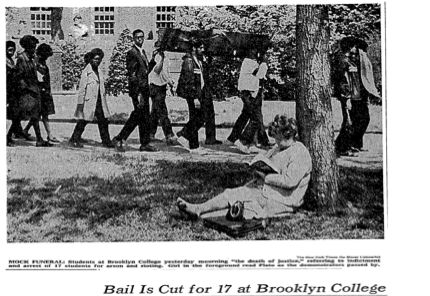How do we define health? How do we access resources to maintain and promote healthy lives in our communities? This project explores these questions through community maps created by Urban Community Health students from Guttman Community College CUNY, which explore both resources and barriers to health in their home communities around the city. Challenging the model of individual responsibility and behavior change often prevalent in public health approaches, the maps provide a more equitable approach to health understandings and health education.
The opening event premiered this video featuring the students’ narration of their maps, in addition to a display of the maps themselves, both video and exhibit invite consideration of intertwined issues between political, educational, and media environments. We are evolving design for displays of information to facilitate dialogue and understanding between policy makers and stakeholders, to educate about inequities in health resources around the city, and expand ideas of how we might define and promote health more holistically in all communities.
08 community health mapping
Uploaded by Motion Design on 2022-01-05.
Thank you to TLH Faculty Fellows, Kristina Baines (Social Sciences and Anthropology, Guttman Community College), Anita Cheng (Film & Media, Art, Hunter College and Brooklyn College), Helen Chang (Behavioral and Social Sciences, Hostos Community College) and Kathleen Tamayo Ales (English, Queensborough Community College) for sharing the potential of community mapping for teaching about social structures that impact our health and wellbeing.

